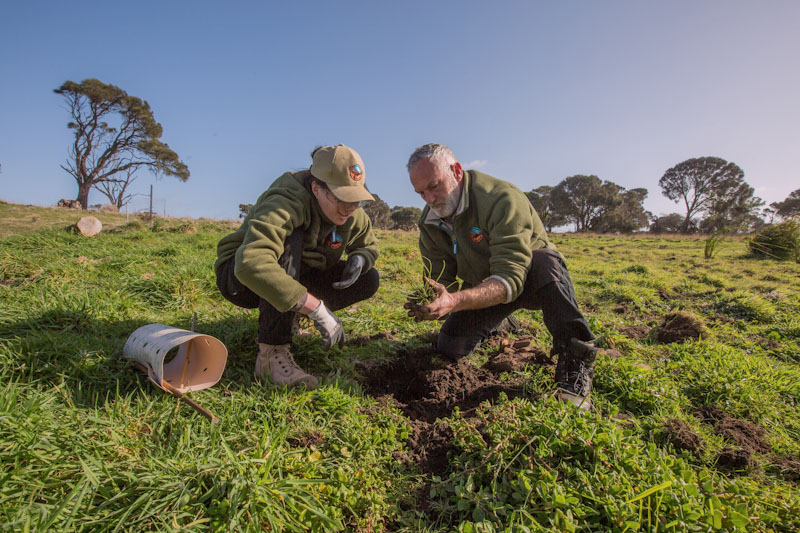Paving the way for Tebrakunna

Fourteen trainees are undergoing a two-year on-country training program to obtain a Certificate III in Conservation and Ecosystem Management through the Melythina Tiakana Warrana Aboriginal Corporations (MTWAC) Rangers Employment Program.
The TCF is supporting the program by providing $150,000 to train rangers, with the ultimate aim of regenerating Tebrakunna (Cape Portland) on Tasmania’s north east coast, into a biodiverse and abundant traditional cultural landscape.
Trainee Lyndon O’Neil said the implementation and growth of programs such as this relied on positive collaboration between the MTWAC and other supporting entities such as the TCF.
“In order to ensure the protection of Tasmania’s beautiful natural environments and the education of future generations it is vital that all organisations work together proactively,” Lyndon said.
“I am incredibly grateful for the continued financial support from TCF which plays an integral role in preserving our First Nations history and protecting our pristine natural environments.
MTWAC Chairperson Nick Cameron said the uptake and enthusiasm from the trainees has been outstanding. They are eager to learn about the cultural and spiritual significance of country and possess a genuine passion for preservation.
“Tebrakunna is an area of significant spiritual and historical importance for the Tasmanian Aboriginal community,” Nick said.
“We want to help Tasmanians maintain a distinctive cultural, spiritual, physical and economic relationship with land and water while ensuring First Nations culture and languages are strong, supported and continue to flourish.”
TCF Chairperson Sally Darke said the Tebrakunna Rangers Employment Program teaches the importance of managing and protecting Tasmania’s unique biodiversity to the younger generation of Tasmanian Aboriginals and ensures connection to country and culture is not lost.
“The program will help the MTWAC to undertake land regeneration and management activities, ensure the protection of threatened and endangered species and develop workshops to pass on local knowledge.
“The rangers will work closely with local communities to improve social, economic and employment outcomes for Tasmanian Aboriginal people and foster collaborative relationships in the area,” Sally said.
With more programs planned in the near future, the MTWAC will be able to offer specific opportunities for activities on country for highly vulnerable cohorts of the Aboriginal community.